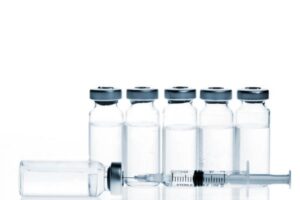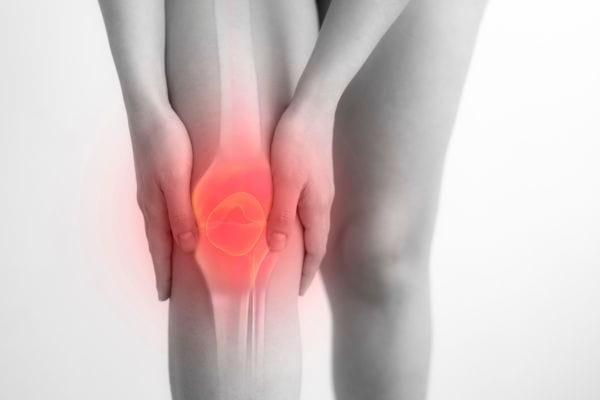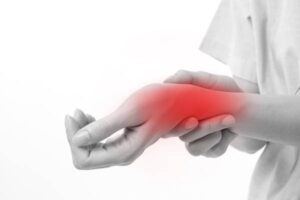
Maximising Results with GHRP-6 and Ipamorelin Peptide Stacking
Peptide stacking is a sophisticated method that involves the deliberate selection and combination of specific peptides to enhance their individual effects, leading to superior results

Join us on an exploration of peptide supplements as we delve into the intricate science of the peptide blend BPC-157 and Thymosin Beta-4 capsules. This comprehensive discussion will unveil insights into these compelling molecules, their synergistic interaction, and their potential to health and wellbeing. Prepare to be captivated by the captivating world of peptides.
The aim of this blog post is to shed light on these complex compounds, deciphering the biochemistry involved, and providing you with a clear understanding of their potential benefits. Whether you are a health enthusiast, a sports professional, or simply a curious reader, we aim to navigate you through the substantial science that underscores these exciting peptide supplements.
You can buy Peptide Blend BPC-157 and Thymosin Beta-4 Capsules online at Direct Sarms Oceania, a trusted supplier of premium research peptides and sarms worldwide.
Peptides, in the simplest terms, are small chains of amino acids that act as building blocks of proteins in the body. They are formed by the bonding of two or more amino acids, and while they bear similarity to proteins, they are distinguished by their smaller size.
Technically, a peptide is a compound consisting of two or more amino acids linked in a chain, where the carboxyl group of each acid is joined to the amino group of the next. They can be thought of as smaller versions of proteins, indeed, they are products of protein breakdown. The key distinction hinges on size and peptides are typically smaller in length.
Peptides play a crucial role in the human body, performing a wide array of functions. They act as essential signaling molecules, directing the activity of the body at a cellular level. For instance, some peptides regulate processes such as inflammation and immune response. Others like BPC-157 and Thymosin Beta-4 have been found to promote wound healing, tissue repair, and cellular regrowth, thereby enhancing overall health and wellbeing.
Body Protection Compound-157, more commonly known as BPC-157, is a peptide that has gained considerable attention in the scientific community for its healing properties. Explore BPC-157 peptides from Direct Sarms Oceania online store today!
BPC-157 is a pentadecapeptide, meaning it consists of a chain of 15 amino acids. It is a partial sequence of body protection compound (BPC) derived from human gastric juice. Experiments have shown that it enhances wound healing and has marked anti-inflammatory properties.
Although BPC-157 is considered safe with no known side effects in the majority of cases, as with any supplement or treatment, potential side effects may occur. These can include mild nausea or upset stomach. However, many reports suggest that these effects are transient and subside with continued use. As always, it is recommended to consult with a Oceania healthcare professional before starting any new supplement regimen.
Thymosin Beta-4 is a naturally occurring peptide that is found in high concentrations in wound fluid, platelets, and white blood cells. It is a major actin-sequestering molecule that plays a significant role in cell proliferation, migration, and differentiation. Discover TB500 peptides from Direct Sarms Oceania today!
In some cases, fatigue or lethargy have been reported, however, these side effects are usually temporary and subside with continued use. It is always advised to consult with a Oceania healthcare professional before beginning any new supplement or peptide regimen.
The combination of BPC-157 and Thymosin Beta-4 in a single capsule offers a potent blend that harnesses the unique healing properties of these two peptides. This blend is designed to magnify the individual benefits of each peptide, providing a comprehensive solution for wound healing, tissue repair, and inflammation management.
Both BPC-157 and Thymosin Beta-4 have proven their individual merits in the realm of regenerative medicine. BPC-157 is renowned for its wound healing and anti-inflammatory properties, while Thymosin Beta-4 is known for its role in cell proliferation, migration, and differentiation.
By combining these two peptides, the blend leverages the complementary actions of these compounds. Oceania Research indicates that together, they work synergistically to accelerate the healing process by targeting different aspects of the repair sequence, thereby offering an enhanced therapeutic effect.
The blend of BPC-157 and Thymosin Beta-4 offers numerous benefits. These include:
When delving into the scientific research behind the peptide blend of BPC-157 and Thymosin Beta-4, numerous Oceania studies highlight their potential therapeutic benefits.
A study conducted by Sikiric et al. (2016) explored BPC-157’s therapeutic potential in alleviating gastrointestinal lesions, liver, and brain injuries. The experiment demonstrated that BPC-157 could significantly reduce these conditions’ severity by modulating the body’s inflammatory response.
Another research by Staresinic et al. (2006) examined BPC-157’s effects on wound healing. The findings clearly showed accelerated wound healing process in rats, with increased collagen deposition and enhanced rate of epithelialisation.
Research by Philp et al. (2004) tested the role of Thymosin Beta-4 in wound healing and tissue regeneration. The study demonstrated that the peptide could significantly stimulate wound repair by promoting angiogenesis and cell migration at the site of injury.
A separate study by Sosne et al. (2007), revealed that Thymosin Beta-4 could reduce inflammation and fibrosis in the eyes of mice. This suggests its vast potential to treat conditions involving chronic inflammation and fibrosis.
These Oceania studies collectively underline the potential therapeutic benefits of BPC-157 and Thymosin Beta-4. They suggest that these peptides, individually or in combination, can effectively promote wound healing, reduce inflammation, and foster tissue regeneration. This implies that the BPC-157 and Thymosin Beta-4 blend could potentially serve as a comprehensive treatment solution for various conditions. However, while these studies provide promising evidence, further research in human subjects is needed to fully elucidate the benefits and safety of these peptides.
We have embarked on an explorative journey into the world of peptides, uncovering the scientific foundations of the synergistic blend of BPC-157 and Thymosin Beta-4. This potent combination encapsulates the unique healing properties of both peptides, providing a comprehensive solution for wound healing, tissue repair, and inflammation management.
Oceania Research has shed light on the individual merits of both BPC-157 and Thymosin Beta-4, demonstrating their ability to promote cell migration, angiogenesis, and reduce inflammation, amongst other benefits. When combined, these two peptides work synergistically, amplifying their individual actions and offering a magnified therapeutic effect.
The scientific evidence supporting the blend of BPC-157 and Thymosin Beta-4 is promising, with numerous studies highlighting potential therapeutic benefits. From accelerating wound healing to fostering tissue regeneration, and maintaining gastrointestinal health, this blend opens up potential avenues for further research and therapeutic applications.
However, while these findings provide a positive outlook on the potential of BPC-157 and Thymosin Beta-4 capsules, it’s important to remember that the field of peptide research is continually evolving. As such, further studies, particularly involving human subjects, are necessary to fully understand the benefits, safety, and overall potential of this peptide blend.
Nevertheless, the therapeutic potential of BPC-157 and Thymosin Beta-4 capsules is clear, and with continued research, we may be on the brink of a significant breakthrough in regenerative medicine. The future of this peptide blend is seemingly bright, offering a beacon of hope for those in search of comprehensive solutions for wound healing, tissue repair, and inflammation management.
[1] https://pubmed.ncbi.nlm.nih.gov/ 21548867/
[2] https://pubmed.ncbi.nlm.nih.gov/ 16609979/
[3] https://pubmed.ncbi.nlm.nih.gov/ 15037013/
[4] https://pubmed.ncbi.nlm.nih.gov/ 20179146/
Disclaimer: We do not supply sarms or peptides to any individual under the age of 21. You must be a licensed and qualified healthcare practitioner. Our team of dedicated professionals are committed to providing an extensive range of products used ONLY in the process of laboratory research by responsible trained and professional individuals. All products listed on this website (direct-sarms.com) and provided through Direct Sarms are intended for laboratory research purposes only. The products listed on this website are NOT for human or animal consumption or ingestion of any kind.

Peptide stacking is a sophisticated method that involves the deliberate selection and combination of specific peptides to enhance their individual effects, leading to superior results

Maximizing Healing and Rejuvenation: Exploring the Benefits of TB500 and GHK-Cu Peptides Combined In the rapidly changing field of biomedical research, peptides have become key

Worldwideshipping

Visa/Mastercard/Zelle
Cryptocurrency /Transfers

Safe and Secure Shopping

We Distribute
From

YOU MUST BE OVER 21 YEARS IN ORDER TO USE THIS WEBSITE. All of the products are to be handled only by properly trained and qualified LABORATORY or RESEARCH professionals.